Conference ‘Media Policy and Regulation: Activating Voices, Illuminating Silences’
Date: 18-19 July, 2013
Venue: University of Minho, Braga, Portugal
Deadline for abstracts: 1 March, 2013
Organization: Communication and Society Research Centre, University of Minho, Braga, Portugal
In the midst of expectations and skepticism, media regulators are booming around the world. So-called independent regulators or statutory regulatory bodies have thrived with liberalization and privatization in the late 1980s and 1990s. Ever since, their configuration has been profoundly transformed as technical convergence deepens and more actors expect to play an active role in the overall media regulatory construct. At sub-national, national and transnational levels, the complexification of media self and co-regulatory mechanisms is also notorious. Indeed, the diversity and distinctiveness of media regulators (and related agencies) is such that empirical reality is permanently challenging the achievements of the scientific field. Aiming to address in depth media regulators in different geographical contexts, the Communication and Society Research Centre (CSRC) invites you to submit papers on any of the following topics:
- conceptual dilemmas on media regulation, media regulators, media policy, media governance, statutory media regulation, deregulation, etc;
- convergent or sectorial media regulators (legal frameworks, functions, legitimizing/underlying values, performance, enforcement mechanisms/accountability, institutional organization/composition and funding);
- links between sub-national/regional, national and transnational media regulators;
- articulations between media regulation, co-regulation and self-regulation;
- the independence of ‘independent’ media regulators;
- social movements and citizens’ dynamics to set up and/or to abolish media regulators;
- cross-country comparative analysis of media regulators;
- internet/new media regulation.
This conference on media policy and regulation is the closing event of the project ‘Media Regulation in Portugal: The ERC’s Case’ financed by the National Science Foundation (PTDC/CCI-COM/104634/2008). For three years, the project researchers have scrutinized the legacy of the Portuguese media regulator, its conceptual model and daily performance. With the support of the project’s external consultants and members of the EuroMedia Research Group, a cross-country comparative analysis of media regulators was also possible. The main results of the project will be made available during this conference.
The abstract should be submitted by 1 March to Helena Sousa (mediareg@ics.uminho.pt) with the following information: a) author(s); b) affiliation; c) email address; d) 300 words abstract.
Members of the Organization Committee: Helena Sousa, Manuel Pinto, Joaquim Fidalgo, Ana Melo, Elsa Costa e Silva, Luís António Santos, Sérgio Denicoli, Mariana Lameiras, Marta Eusébio Barbosa, Raphael Marinho, Chalini Barros
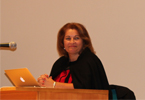 Ana Duarte Melo presented and defended on 15th October the PhD Dissertation, entitled “The Participation of Citizen-Consumer in the Advertising: perceptions, forms and regulation”.
Ana Duarte Melo presented and defended on 15th October the PhD Dissertation, entitled “The Participation of Citizen-Consumer in the Advertising: perceptions, forms and regulation”.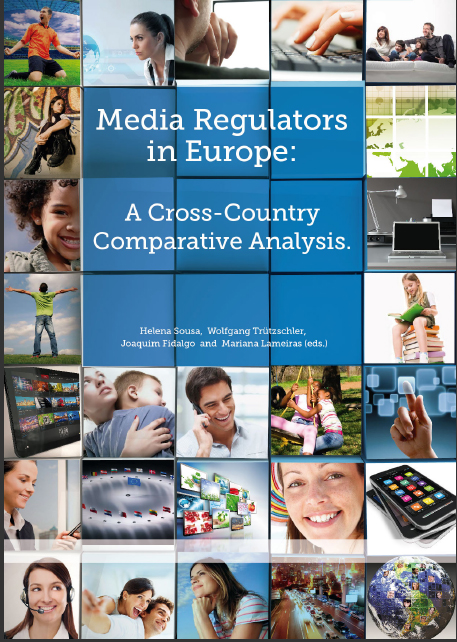
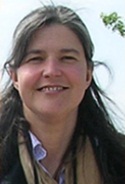

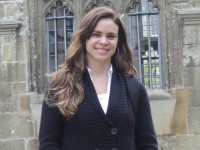
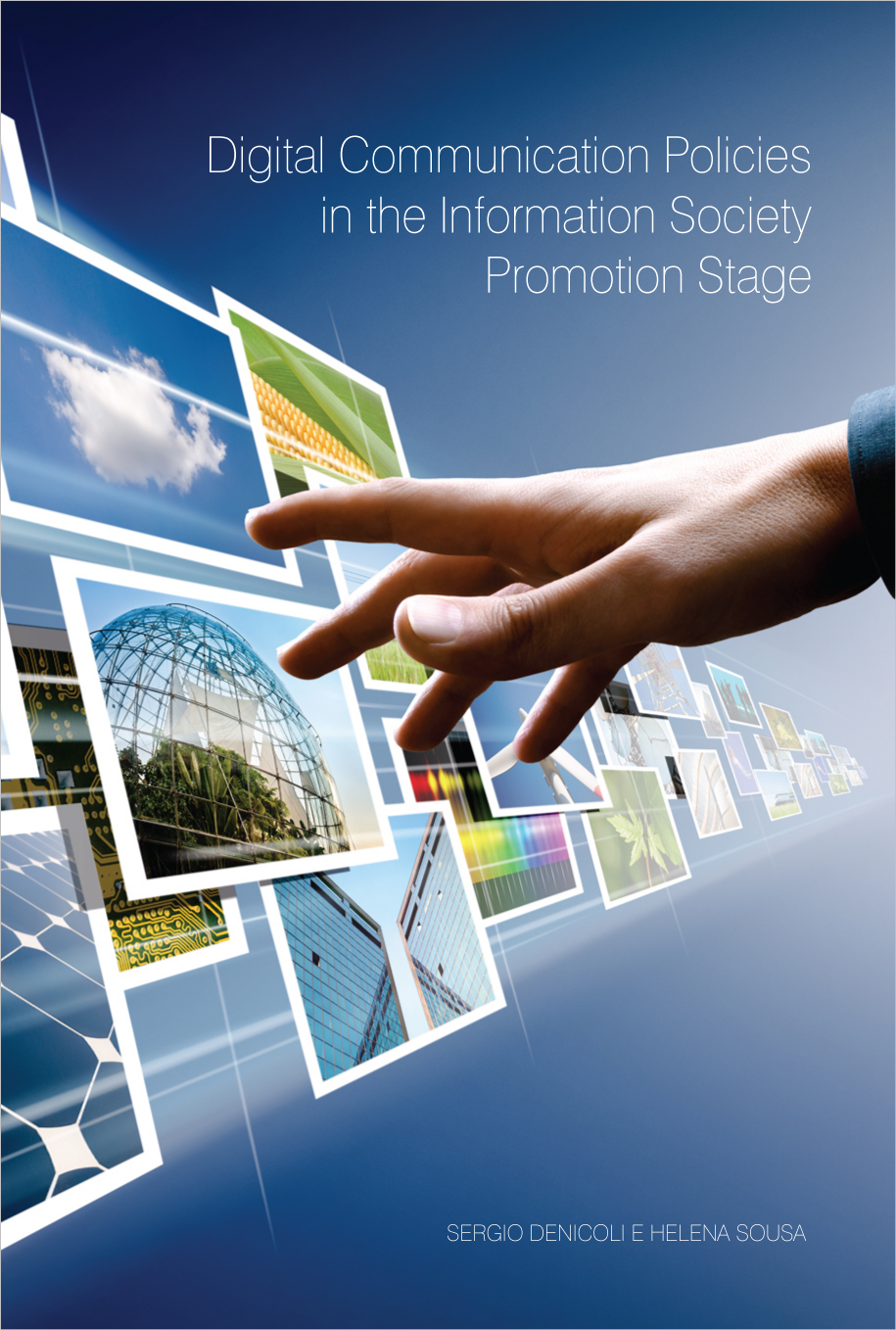
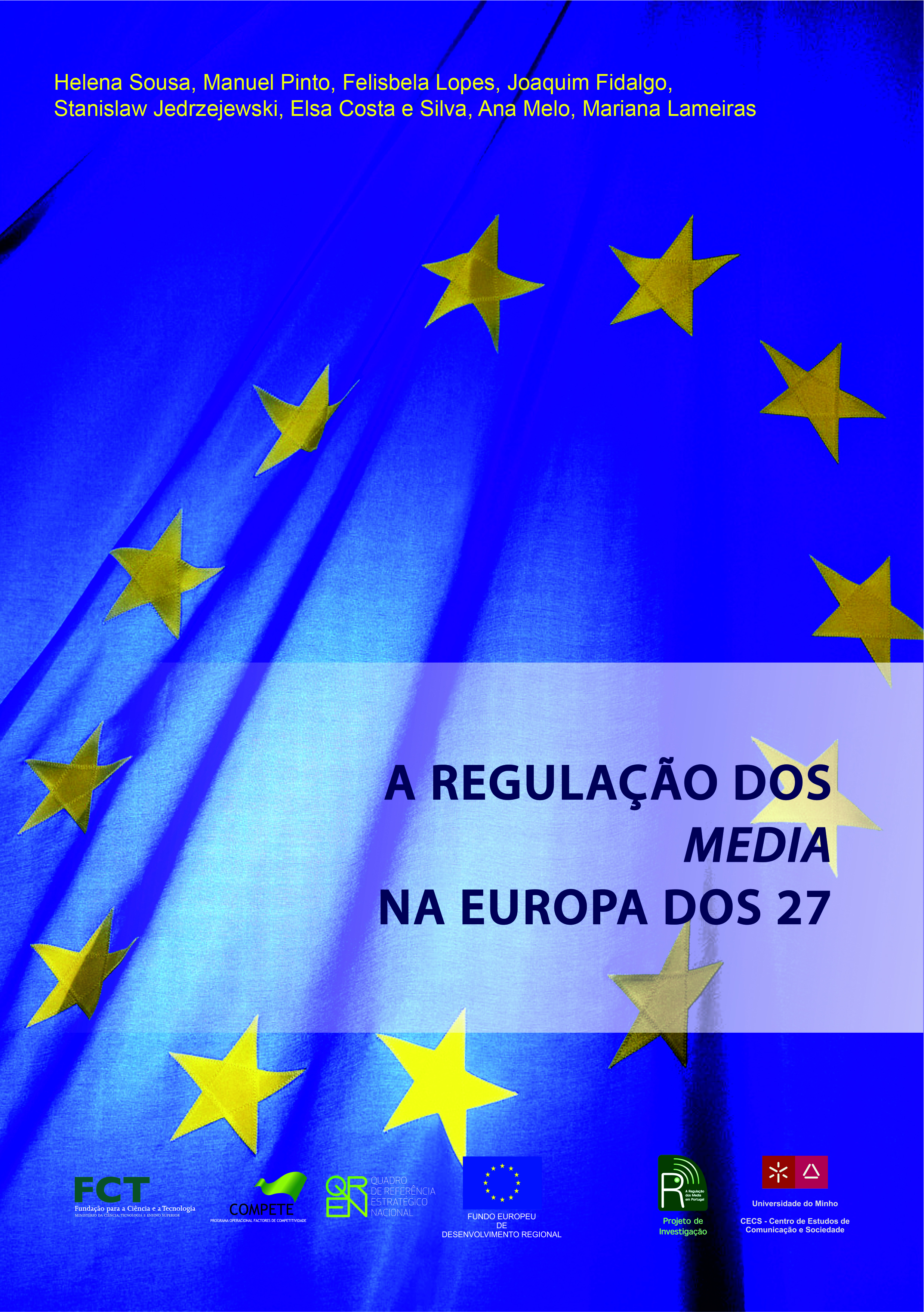

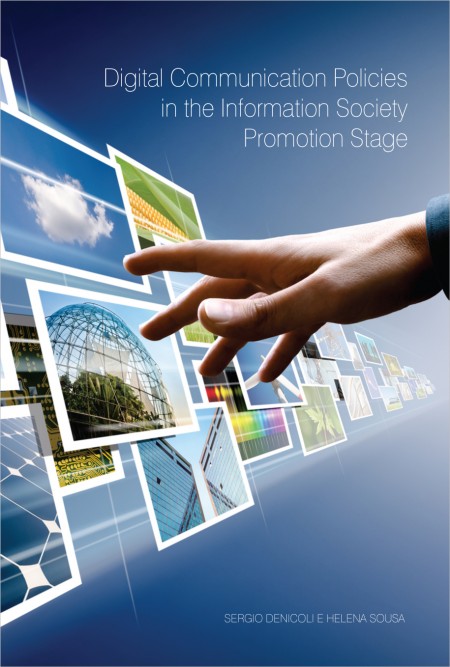
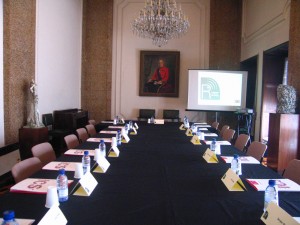

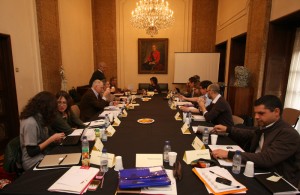




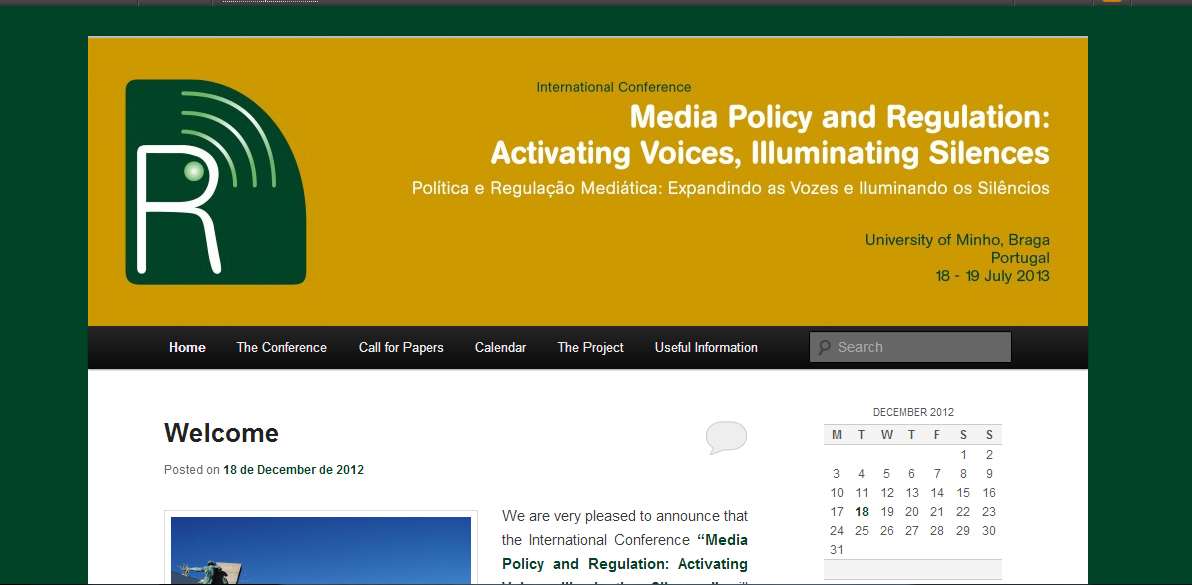

 Homepage
Homepage